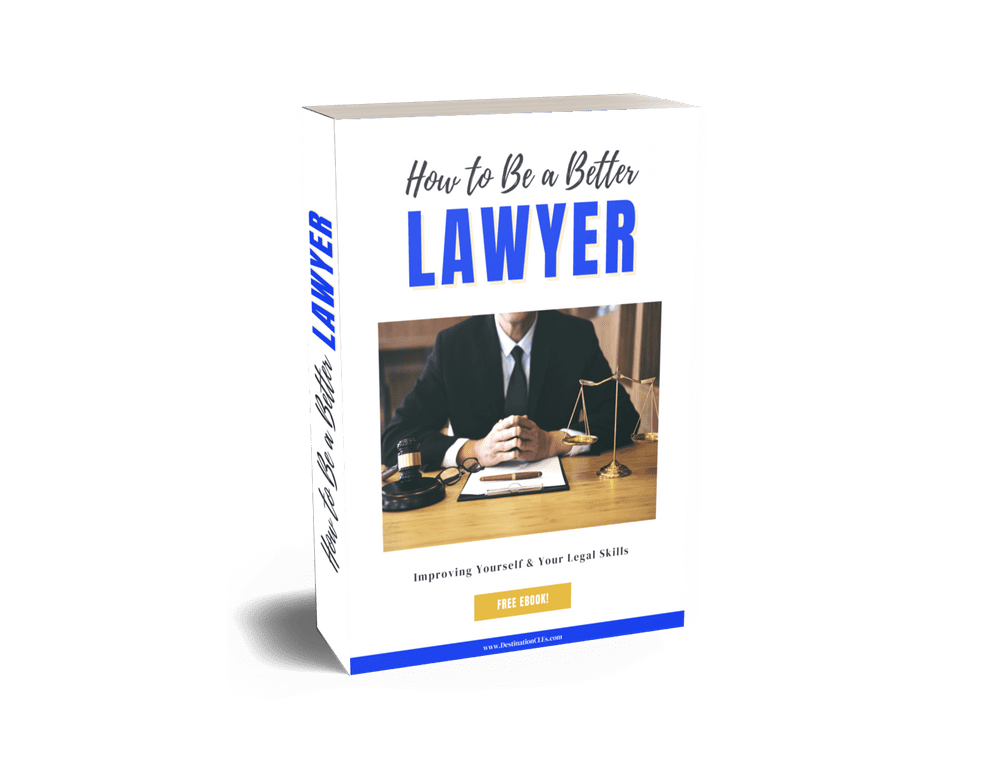Mastering the use of ChatGPT prompts for lawyers can feel like a daunting task.
You might be wondering, “How can AI help me in my legal practice?” or even doubting its capabilities. But here’s the thing…
ChatGPT prompts are game-changers in the legal industry.
This powerful tool is not just about automating tasks; it’s about transforming how you handle your documents, caseloads, and interactions with clients.
Sure, there might be a learning curve involved, but trust us – once you get the hang of it, you’ll wonder how you ever practiced law without AI!
The Emergence of AI in the Legal Field
Gone are the days when legal practice was all about pouring over mountains of paperwork and manually drafting complex legal documents. Now, we’re witnessing a revolution in how law firms operate thanks to the use of artificial intelligence (AI).
One standout player? ChatGPT from OpenAI.
This isn’t your run-of-the-mill chatbot. Rather, it’s an advanced AI system that can hold human-like conversations with ease.
In fact, these tools have proven themselves to be invaluable at assisting lawyers with tackling complex legal issues efficiently.
With its power to automate various tasks within a firm’s daily legal process such as quickly answering common client questions on basic legal writing, this tool is nothing short of transformative.
Related: How to Achieve Better Work-Life Balance as a Lawyer
How Lawyers Can Leverage ChatGPT
The world of law is evolving with AI and the widespread use of ChatGPT, a revolutionary tool from OpenAI that simulates human-like conversations. While it can’t give legal advice and while it’s not recommended for legal research due to potential inaccuracies, there are plenty of helpful things this tool can do. Here’s how you can leverage it for your law practice:
Drafting Legal Documents with ChatGPT
This AI chatbox has been harnessed to revolutionize the drafting of legal documents, a task often seen as complex and time-consuming.
With ChatGPT, the entire process is simplified.
The AI-powered bot meticulously ensures that all key elements are included in the document, reducing the risk of omissions. It streamlines the drafting process by providing a structured format and suggesting essential clauses that need to be included.
What’s more, it accomplishes this while maintaining the necessary legal language and terminologies. As a result, legal professionals can focus more on the strategic aspects of their work, while ChatGPT takes care of the laborious task of drafting precise, comprehensive legal documents. This is indeed a game-changer in the field of law.
Of course, it’s important to always thoroughly review and verify anything ChatGPT generates, as it can sometimes be inaccurate.
Client Communication
ChatGPT can also be a valuable tool for lawyers looking to streamline their email correspondence.
The AI-powered chatbot can be trained to generate email replies to clients based on specific keywords, prompts, or client inquiries. This can save lawyers significant amounts of time and effort in crafting personalized email responses.
With ChatGPT’s natural language processing capabilities, the generated emails can be tailored to the tone and style of the individual lawyer or law firm, ensuring that the message is consistent with the brand and ethos.
Ultimately, by integrating ChatGPT into their email workflow, lawyers can focus their time and energy on higher-level tasks, such as legal research, drafting, and client consultations.
The Limitations and Ethical Considerations of Using AI in Law
While AI tools like ChatGPT have revolutionized many aspects of legal work, they’re not without their limitations. Complex legal language often requires human interpretation and judgment, which are skills that AI has yet to fully replicate.
Even though these tools can process vast amounts of data, they cannot replace the nuanced understanding and expertise of a human lawyer. Critical decision-making and providing sound legal advice are areas where the human touch is still needed.
Plus, there are ethical considerations to bear in mind when using AI, including issues around accountability, transparency, and potential bias.
As we continue to integrate AI into legal practice, it’s important for professionals to remain aware of these potential limitations and ethical concerns.
Ethical considerations: A major concern?
The integration of AI into legal matters doesn’t come without its ethical quandaries, particularly when it comes to client confidentiality.
As attorneys, maintaining the trust of clients is paramount and this extends to the use of AI tools. With these technologies processing vast quantities of data, there’s a valid concern about how client information is handled.
Can these AI tools ensure the same level of confidentiality that a human lawyer would? Are there sufficient safeguards in place to prevent data breaches or misuse of sensitive information?
These are critical questions that legal professionals must grapple with as they incorporate AI into their practices. It underscores the need for stringent data security measures and clear guidelines on the use of AI tools to protect client confidentiality and uphold the high ethical standards of the legal profession.
Not Recommended for Legal Research
Another limitation is the accuracy of AI-powered tools like ChatGPT for legal research. While it may be tempting to rely on AI chatbots for quick answers to legal questions, these tools are not always reliable or accurate.
Due to the complex nature of legal language and the nuances of case law, using AI alone for legal research can lead to errors, incorrect conclusions, and even legal missteps.
Therefore, it’s recommended that legal professionals only use ChatGPT as an assistive tool and not as a replacement for professional research.
Crafting Effective Prompts for Lawyers’ Use Cases
Ready to supercharge your legal services with ChatGPT?
Let’s dive into some effective ChatGPT prompts tailored to the needs of the legal field.
These include prompts that can help change the way you work, including helping you understand relevant laws, or even draft documents like demand letters and non-compete agreements.
- “Draft an outline of a standard non-disclosure agreement.”
- “What are the key elements to include in a legally binding contract?”
- “Can you provide an overview of the steps involved in the litigation process?”
- “What are some common legal considerations when starting a new business?”
- “What is the difference between a trademark and a copyright?”
- “Can you explain the concept of ‘reasonable doubt’ in criminal law?”
- “What are the potential legal implications of data breaches?”
- “Can you outline the process of obtaining a patent for an invention?”
- “What factors should be considered when determining the validity of a will?”
- “Can you provide an overview of the legal requirements for hiring employees?”
- “What are the legal responsibilities of landlords and tenants in a rental agreement?”
- “Can you explain the concept of ‘precedent’ in the context of legal decision-making?”
- “What are the main types of business structures and their respective advantages and disadvantages?”
- “Can you explain the difference between mediation and arbitration as alternative dispute resolution methods?”
- “What are some legal considerations for individuals planning to file for bankruptcy?”
- “Can you outline the process of obtaining a divorce and the factors that may affect its outcome?”
- “What are the main legal requirements for protecting intellectual property?”
- “Can you explain the concept of ‘vicarious liability’ in tort law?”
- “What are the legal requirements for creating a valid and enforceable non-disclosure agreement?”
- “Can you provide an overview of the legal rights and responsibilities of shareholders in a corporation?”
- “What are some key legal considerations for international business transactions?”
- “What are the essential elements to consider when conducting a thorough contract review?”
- “Can you explain the legal requirements for establishing a valid and enforceable non-compete agreement?”
- “What are the main factors to consider when determining liability in a personal injury case?”
- “Can you provide an overview of the legal framework surrounding intellectual property infringement and enforcement?”
- “As a lawyer, I need guidance on [specific legal issue or question]. Please provide me with relevant information, legal considerations, and potential courses of action.”
Note: These are just starting points. Feel free to modify these examples of ChatGPT prompts based on your unique requirements and complex legal issues at hand, and remember to always verify the information for accuracy.
Related: How to Network in the Legal Industry – Law Firm Networking
Enhancing Law Practice through Eduvacation℠ Getaways
Welcome to a new era of professional development.
Destination CLEs is an innovative concept that combines continuing education with vacation getaways for lawyers.
Gone are the days when legal professionals had to choose between enhancing their skills and taking time off work. Instead, this unique approach allows you to learn while relaxing in beautiful locations around the world.
It’s the best course of action if you want an enjoyable getaway while completing your CLE hours.
At these exciting Eduvacation℠ conferences, you’ll enjoy networking opportunities, gain insights from experts in your field, and earn CLE credits – all while escaping your routine environment.
Looking Ahead – The Future Impact of AI on Law Practice
The legal field is no stranger to evolution.
Artificial intelligence (AI), particularly ChatGPT, is increasingly shaping the landscape for law firms and solo practitioners alike.
We’ve seen how it can assist a licensed attorney with drafting legal briefs or answering common client questions through the use of legal and natural language.
But what’s next?
A key area where we might see further integration lies in court date management.
An AI tool could potentially automate reminders about upcoming dates and deadlines based on information from a variety of sources such as online calendars or email threads.
One day, we may even see AI help negotiate with opposing counsel. This could be done by developing an AI tool that’s able to analyze past cases to suggest optimal strategies against opposing counsel.
The possibilities are endless!
Related: Top Continuing Legal Education Conferences in 2023
Conclusion
AI is shaking up the legal field, and ChatGPT seems to be leading the charge.
This revolutionary tool can help you save time on assisting with complex cases and increasing efficiency in your practice.
From researching legal statutes to drafting documents – this chatbot’s got you covered.
The learning curve is worth every bit of effort thanks to the ease it can bring to a lawyer’s workload.
Yes, there are limitations and potential consequences. Yes, ethical considerations exist. But they don’t overshadow the immense potential this technology holds for your legal team.
As we step into the future of legal practice, embracing these technological advancements while navigating their challenges could be the key to staying ahead in this rapidly evolving profession.
And don’t forget, if you’re a lawyer looking to expand your skills and knowledge, check out the Eduvacation℠ opportunities offered by Destination CLEs. These programs offer a range of sessions that are designed to keep you up-to-date on the latest legal developments and best practices.
The best part is, these CLE conferences are held in some of the most beautiful locations around the world, allowing you to combine education with relaxation.
As a lawyer, it’s important to stay ahead of the curve and keep up with industry trends – and Eduvacation℠ getaways from Destination CLEs can be a great way to do just that.
Related:
- How to Achieve Better Work-Life Balance as a Lawyer
- How to Network in the Legal Industry – Law Firm Networking
- Top Continuing Legal Education Conferences

DestinationCLEs.com is a participant in the Amazon Services LLC Associates Program, an affiliate advertising program designed to provide a means for sites to earn advertising fees by advertising and linking to Amazon dot com.








